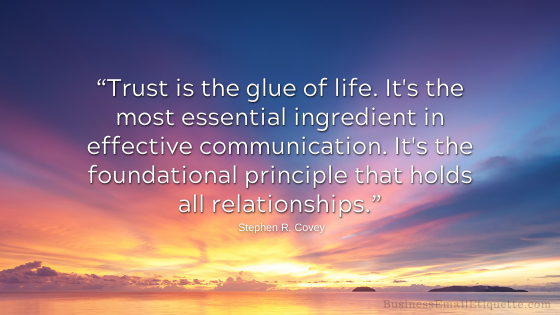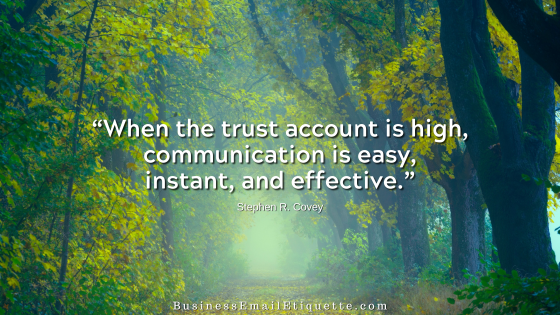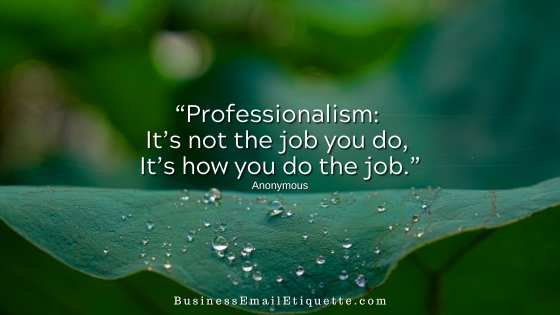Do You Cc: the Sender if You Forward Their Business Email?

Yes, and only if you asked permission to forward their email first.
I posted who you should To and Cc in your business emails. A couple of folks emailed me asking whether Cc’ing the original sender is required if you are forwarding their email that was sent just to you. You ask; I answer.
What is the proper Email Etiquette when forwarding business emails to a third party initially sent to you? Cc’ing on its own is not the recommended approach. Why? It is a mistake to think that Cc’ing the original sender negates asking for permission before you forward the communications sent to you.
Some believe that Cc’ing the sender lets them know you’ve forwarded their email. But what if that information is only for your eyes? What if the sender had no intention of broadcasting their comments?
The answers to these questions can expose and cause problems in your business relationships. Not to mention creating a potential breach of trust.
Always Ask Before Forwarding
A follow-up question was, “I don’t want them to know I am forwarding their email!” Why wouldn’t you want them to know you are forwarding their private communication to you? Hmmm… that calls into question your motivation for forwarding in the first place, doesn’t it?
Could it be that the sender does not appreciate why or who you are forwarding to? If so, this indicates that you may not have the proper motives for doing so.
Otherwise, why wouldn’t you ask if it is okay to forward the email and let them know your intentions? A simple email stating, “I’ll be forwarding your email to so and so for their comment and review — is that okay?” would suffice. It will allow the sender the opportunity to say it’s not okay.
It’s their words sent to you. You don’t own them or have tacit permission to do with them what you may. Thinking otherwise most certainly will not be good for your business or reputation.
If you do not feel comfortable asking that question, you are probably being a gossip or e-tattler. We all know people who forward others’ emails while adding their comments. This type of behavior isn’t professional and can easily backfire. Don’t be that person.
Trust Lost
It happens often: emails are explicitly sent to one person and forwarded to others. Even though this happens all the time, like many other misconceptions about the online arena and email, it does not mean it is good practice or the right thing to do.
This may cause others to wonder what else you may not be trusted with, particularly in business. The proper approach is to consider all emails for your eyes only unless stated otherwise.
No Matter The Intentions
Intentions do not make a difference either. If you are forwarding to help (or to harm), that doesn’t make the forwarding okay. If you feel forwarding an email to another party can help the person who sent it to you, simply ask their person if you can do so. Let them know what you hope to accomplish.
FUN FACT: Emails are copyright-protected by the author when they are created. That’s just how copyright works with written and creative works. To forward, publish, or post without the original author’s permission is copyright infringement.
Think about it — when you send an email, you send your comments directly to that person, not anyone they want to send or expose your commentary to.
This goes for coworkers in the office, too. In the workplace, forwarding coworkers’ emails without their knowledge or permission can cause you to be viewed as petty or, worse, not a team player. Once again, it depends on your motives for doing so.
That is why, when it comes to business, email users need to be cognizant and communicate as if every email is on company letterhead and can be publicly exposed. I’ve emailed for almost 30 years, and there isn’t a single email “out there” that can make me look bad or negatively reflect on my business.
By asking before forwarding and Cc’ing the original sender on the email you are forwarding to others, you will show that you can be trusted and that the sender has your confidence. In business, you want to be known as a trustworthy coworker, partner, or associate, right?
Without trust, then what do you have?






